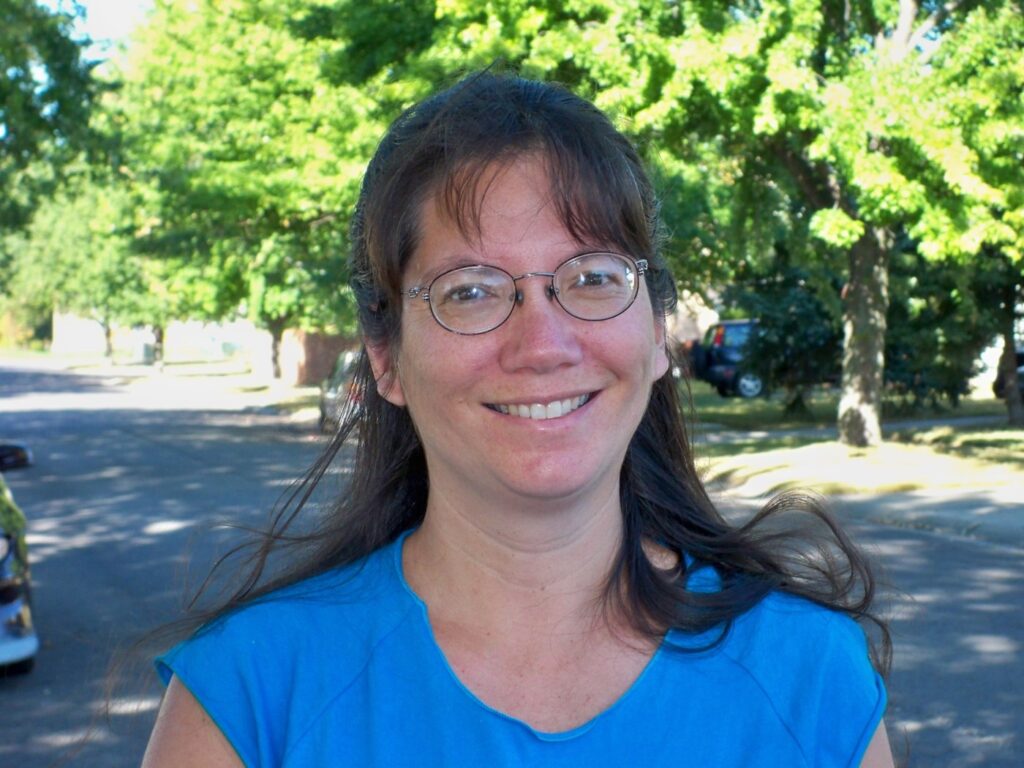
An ethnic studies professor at UC Riverside whose claims of Cherokee heritage have been in question for 15 years and stirred public outcry has agreed to resign following a complaint by 13 faculty members.
Under a separation agreement signed in January, Andrea Smith will be allowed to continue her employment as a full-time faculty member until August 2024, when she will become eligible to receive full retirement benefits and the honorary title of emeritus.
However, Smith, a tenured professor employed at UC Riverside since 2008, has agreed that the university will not list her emeritus status on its website directories.
Smith’s resignation staves off an administrative investigation and potentially substantial legal costs to the university. John Warren, a spokesperson for UC Riverside, said in an email Wednesday that the negotiated separation agreement brings a timely conclusion to Smith’s continued employment with the university.
“Investigations of a tenured faculty member for alleged misconduct have potential for litigation and appeals, and can unfold over the course of years,” Warren said.
‘Pretendians’
Jacqueline Keeler, a freelance journalist, author, Navajo Nation citizen and a descendant of the Yankton Sioux Tribe, said the world of academia has become a breeding ground for “pretendians,” those who falsely claim indigenous identity for professional, political, and monetary gain.
“Academia has become a pretendian factory,” Keeler said in a telephone interview Wednesday, Aug. 30.
She believes universities, standing behind federal civil rights and discrimination laws, have essentially given their faculty carte blanche to perpetuate false claims of ancestral ties to indigenous people or other races. Such was the case at UC Riverside, she said.
“I think the university’s claim they were fearful of a lawsuit is ridiculous,” Keeler said. “(Smith’s) retirement will cost more than a lawsuit, and there’s no basis for one because there’s no proof she’s Native (American).”
Faculty complaint
Smith’s resignation was prompted by a complaint to the university received last August from 13 faculty members. They accused Smith of making fraudulent claims to Native American identity in violation of the Faculty Code of Conduct, according to the separation agreement.
Smith, according to the agreement, denied and disputed the allegations contained in the complaint. The university subsequently engaged in discussions with her to resolve the matter, and Smith agreed to resign.
The university has agreed to compensate Smith up to $5,000 for attorney fees she incurred in resolving the complaint, according to the agreement.
‘Will always be Cherokee’
Smith, who is not registered as a citizen of the Cherokee Nation, did not respond to email and telephone messages seeking comment.
But in 2015, amid ongoing media controversy surrounding her questionable ties to the Cherokee Nation, Smith released a statement on her blog saying, “I have always been, and will always be Cherokee.”
“I have consistently identified myself based on what I knew to be true,” Smith said in her 2015 blog post. She said there had been “innumerable false statements” made about her in the media.
“It is my hope that more Indigenous peoples will answer the call to work for social justice without fear of being subjected to violent identity-policing,” Smith said.
15-year history
Controversy surrounding Smith’s Cherokee heritage reportedly began after she was denied tenure at the University of Michigan in 2008. She subsequently moved on and took the job at UC Riverside that same year.
The question surrounding Smith’s alleged ancestral ties to the Cherokee Nation generated interest from a multitude of Native American scholars and activists, who dove deep into her background.
Some were even commissioned by Smith herself to research her genealogy.
David Cornsilk, a retired genealogist, citizen of the Cherokee Nation and a member of the United Keetoowah Band of Cherokee Indians, said Smith hired him in the 1990s to research her genealogy on both her mother’s and father’s side. He said he found no trace of Cherokee ancestry in Smith’s bloodline.
Smith’s questionable Cherokee heritage has also been widely reported in the mainstream media, particularly in the New York Times, including an expose in New York Times Magazine in May 2021.
Four months after the magazine expose was published, UC Riverside posted a statement on its website on “indigenous identity affiliation,” insisting “upon transparency and integrity in matters of Indigenous affiliation and identity” by all faculty.
Warren could not comment on why the university did not act sooner.
“Allegations of misconduct by a faculty member are a personnel matter and protected by privacy laws, and, with few exceptions, are not disclosed,” Warren said in his email Wednesday.
Keeler, the author and Navajo Nation citizen, said Smith is among several figures in academia who’ve made headlines in recent years over false identity claims. Others include Jessica Krug and Elizabeth Hoover.
Krug, a white Jewish woman from the Midwest and an associate professor at George Washington University, resigned in 2020 after she was outed and admitted to inventing several Black identities, including being of North African and Caribbean descent.
Hoover, an associate professor at UC Berkeley, issued an apology in May, admitting she was a White person who incorrectly claimed to be Native American her whole life.
Assemblymember James Ramos, a member of the San Manuel Band of Mission Indians, called the “pretender” problem a “serious issue” that especially needs to be better addressed in university systems.
“The bigger question is, when someone claims Native American ancestry — when you start to see people using that to further themselves — there should be the question of who is and who isn’t (Native American), and who decides who is and who isn’t,” Ramos said.
Related Articles
Student loan payments restart will dent US housing market, survey finds
Northwestern’s hazing history: Cases over 150 years show how hard it can be for colleges, institutions to extinguish these rituals
ChatGPT-wary universities scramble to prepare for new school year
How the FAFSA simplification can impact your financial aid
Taliban have no plans to lift ban on female education
